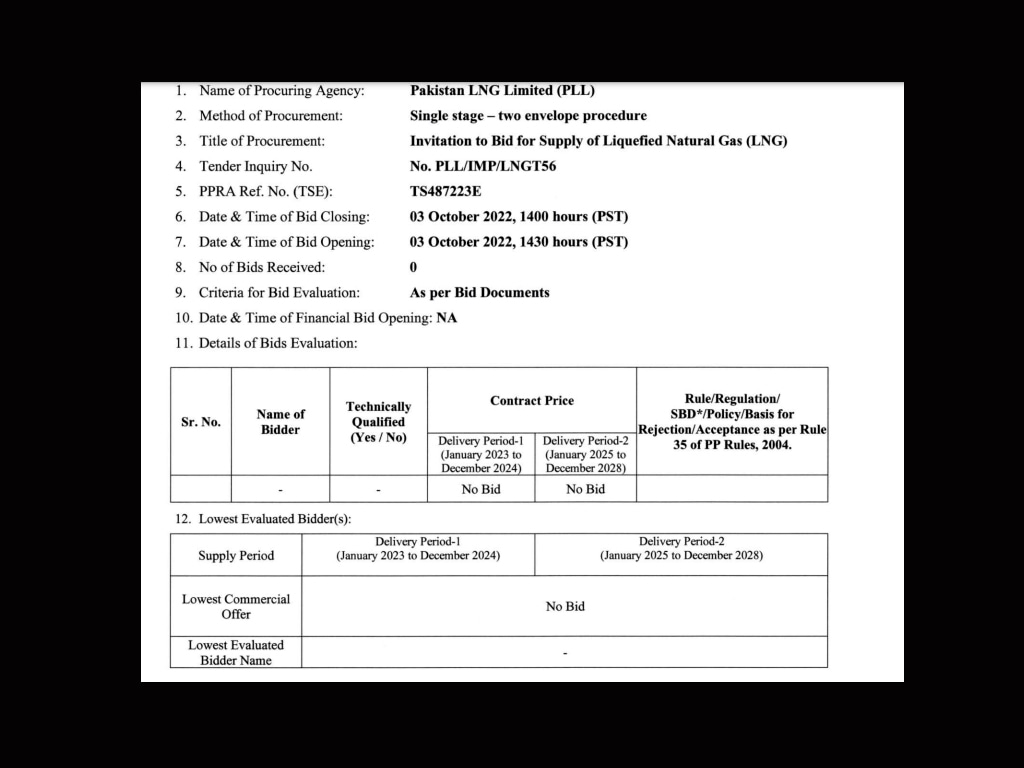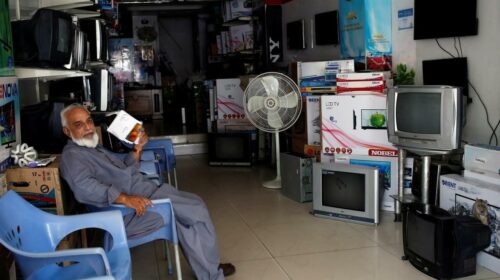In a significant development, Pakistan LNG Limited (PLL), a wholly-owned subsidiary of Government Holdings Private Limited (GHPL), failed to receive a single bid from international suppliers for the purchase of Liquefied Natural Gas (LNG) in a tender that expired on Monday.
Back in August, PLL invited bids for 72 LNG cargoes from international suppliers across a period of six years.
Suppliers were asked to submit bids by September 14, while bids were invited from reputed companies to ship cargo on a Delivered Ex-Ship basis (DES) at Port Qasim, Karachi, stated PLL.
“Bid documents shall be available from 10 August 2022 to 13 September 2022,” it said.
However, no supplier participated in Pakistan’s tender, which expired on October 3, showed PLL bid documents.

The company was seeking one cargo per month for the six-year period, documents showed.
Each cargo was to have a volumetric quantity of 140,000m3, added PLL, mandated by the government of Pakistan to carry out the business of importing, buying, storing, supplying, distributing, transporting, transmitting, processing, measuring, metering and selling natural gas, LNG and re-gasified LNG.
In July, PLL invited bids for 10 LNG cargoes from international suppliers during the July-August-September window.
Suppliers were asked to submit bids by July 7. As per PLL documents, each cargo was to have a volumetric quantity of 140,000m3.
However, back then as well, the state-owned LNG purchaser did not receive a single offer in a $1 billion LNG purchase tender, reported Bloomberg, citing traders with knowledge of the matter. “That illustrates both the extent of the global fuel shortage and also the reluctance of suppliers to sell to a country in the depths of an economic crisis,” said the report then.
Amid supply-chain disruptions globally owing to the Russia-Ukraine war, prices of energy commodities including LNG have skyrocketed.
On the other hand, Pakistan is dealing with fuel shortages, particularly in its power sector. The latest development is expected to intensify the energy crisis, especially during the winter months, as demand for heating rises, affecting both households and industries.







